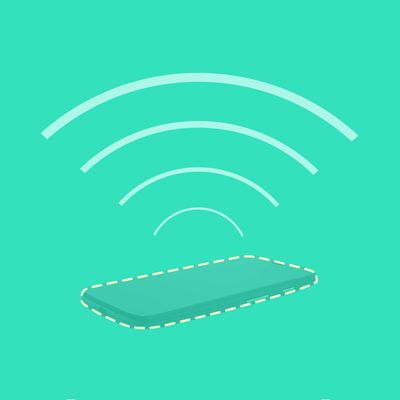
It’s a hard lesson, and it’s one I relearn more often than I’d like: I’m not as popular as I think I am. Turns out that buzzing I felt in my pocket wasn’t a text. It wasn’t a call. It was nothing, the thing a phone does when absolutely no one is trying to get in touch with you. And back in the pocket the it goes, taking with it just one more small shred of ego.
As Shaunacy Ferro noted this week in Mental Floss, phantom cell-phone vibrations are older than widespread use of the cell phone itself: A Dilbert comic strip from 1996 mentioned “phantom pager syndrome” (“On weekends I’ll feel my pager vibrate,” Dilbert laments, “but when I go to check it, I realize I’m not wearing it”).
There are no definitive statistics on how many people have experienced this phenomenon — which, according to a paper published a few months ago in Rapid Communication, is “variously called ‘ringxiety,’ vibranxiety,’ ‘phantom vibrations,’ ‘phantom ringing,’ and ‘FauxCellArm’” — but a handful of small studies have found it to be fairly common. In one 2012 study of college students, 89 percent had experienced phantom phone vibrations at least once; a 2010 survey of hospital workers put the number at 68 percent, with 13 percent of people who’d had phantom vibrations reporting that they felt them at least once a day. In a doctoral dissertation on the subject from 2007, as Wired reported a couple years ago, two-thirds of the people studied had either heard or felt an alert from their phone that hadn’t actually happened.
These imagined sounds and sensations are examples of pareidolia, the phenomenon of perceiving a pattern within randomness where no pattern exists (seeing the man on the moon, for example, or hearing satanic messages in a record played backwards). For this particular pareidolia, there are a few things that make some people more susceptible than others. David Laramie, the author of the 2007 dissertation, told Wired that the younger people in his study were more likely to experience the phenomenon, as were the ones who constantly looked at their phones as a way of regulating their emotions. “My hunch is at this point it’s a generational thing,” he said, more often affecting the people who’d been around cell phones for most of their lives.
Your relationship to your phone isn’t the only thing that plays a role. Your relationships with other people — the ones who may or may not be calling or texting you — may also have an effect. The Rapid Communication paper found that people with higher attachment anxiety, or fear of abandonment, experienced more frequent phantom alerts, particularly when they were expecting a call or a message. (Interestingly, those with higher attachment avoidance, defined by difficulty forming close relationships, reported the opposite: When they were expecting someone to get in touch, they were less likely to experience phantom alerts.)
Researchers still haven’t settled on what in the brain triggers phantom phone alerts, though some have speculated that the areas connected to the sense of touch may misinterpret the brush of clothing against skin, or that expecting a call may lead the brain to process unrelated information as the anticipated event. Until they figure it out, though, I guess there’s really nothing to do but keep on riding this emotional roller coaster. Or put your phone on silent, I guess — but where’s the excitement in that?




